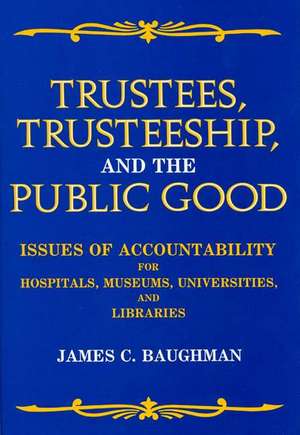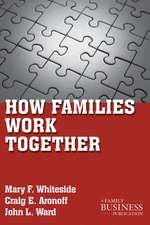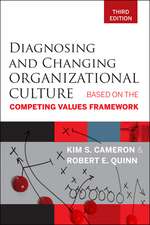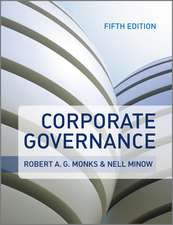Trustees, Trusteeship, and the Public Good: Issues of Accountability for Hospitals, Museums, Universities, and Libraries
Autor James C. Baughmanen Limba Engleză Hardback – 31 mai 1987
. . . a useful handbook for trustees and a fascinating survey of the role of trustees in the management of nonprofit organizations. Baughman ably examines the juridical status of trustees of charitable institutions in light of their obligation to administer trusts for the public's benefit and enjoyment. . . . The appendix includes a three-page guide prepared by Neil F. Hartigan, the attorney-general for Illinois, on how board members of nonprofit organizations can best fulfill their responsibilities. . . . Baughman presents a very readable account of trustees and of the litigation battles that result when trustees fail to act on behalf of the public good. "Business History Review"
Preț: 436.80 lei
Preț vechi: 688.37 lei
-37% Nou
83.58€ • 91.07$ • 70.43£
Carte tipărită la comandă
Livrare economică 23 aprilie-07 mai
Specificații
ISBN-10: 0899301959
Pagini: 208
Dimensiuni: 156 x 234 x 13 mm
Greutate: 0.47 kg
Editura: Praeger
Cuprins
Preface
Introduction
America's Charitable Enterprise
The Board and Its Images
Hospitals
Colleges and Universities
Museums
School and Public Libraries
Pro Bono Publico
Appendixes
Index
Recenzii
«Trustees, Trusteeship, and the Public Good casts useful light on the role of non-profit institutions in modern society. The general public as well as those involved directly with colleges, museums, hospitals, and other organizations, can benefit from this cautionary review of cases in which sometimes prominent people have lost their way in performing their duties." --The Boston Globe "James Baughman's thought-provoking, sometimes startling account of the deeds and misdeeds of those who control over ten percent of the nation's wealth--charitable trusts--is sure to raise some eyebrows within the venerable institutions that are the subject of this book. But no one who serves or is considering serving on any charitable board can afford to ignore what this author has to say.“”Marita A. Driscoll, Attorney
«Trustees, Trusteeship, and the Public Good by James Baughman is both a useful handbook for trustees and a fascinating survey of the role of trustees in the management of nonprofit organizations. Baughman ably examines the juridical status of trustees of charitable institutions in light of their obligation to administer trusts for the public's benefit and enjoyment. Nonprofit institutions in the United States constitute 11 percent of our national wealth. An examination of the management of this vast and important group of institutions provides an informative study. . . . Baughman acknowledges that one of his goals in writing this book was to offer some background material and assistance to trustees who wish to take seriously their responsibilities. The appendix includes a three-page guide prepared by Neil F. Hartigan, the attorney-general for Illinois, on how board members of nonprofit organizations can best fulfill their responsibilities. If trustees conscientiously follow the five admonitions of Hartigan's guide, most of the destructive and sordid conflicts described by Baughman can be avoided. Baughman writes from the vantage point of a knowledgeable consultant to nonprofit organizations, but he places his discussion of America's charitable enterprises, pertinent legal traditions, and the role of trustees in a broad historical perspective. He both documents and encourages the recent trend toward demand that trustees operate in a more open and accountable manner. Despite the heavy emphasis on the law, Baughman presents a very readable account of trustees' and of the litigation battles that result when trustees fail to act on behalf of the public good.“”Business History Review












